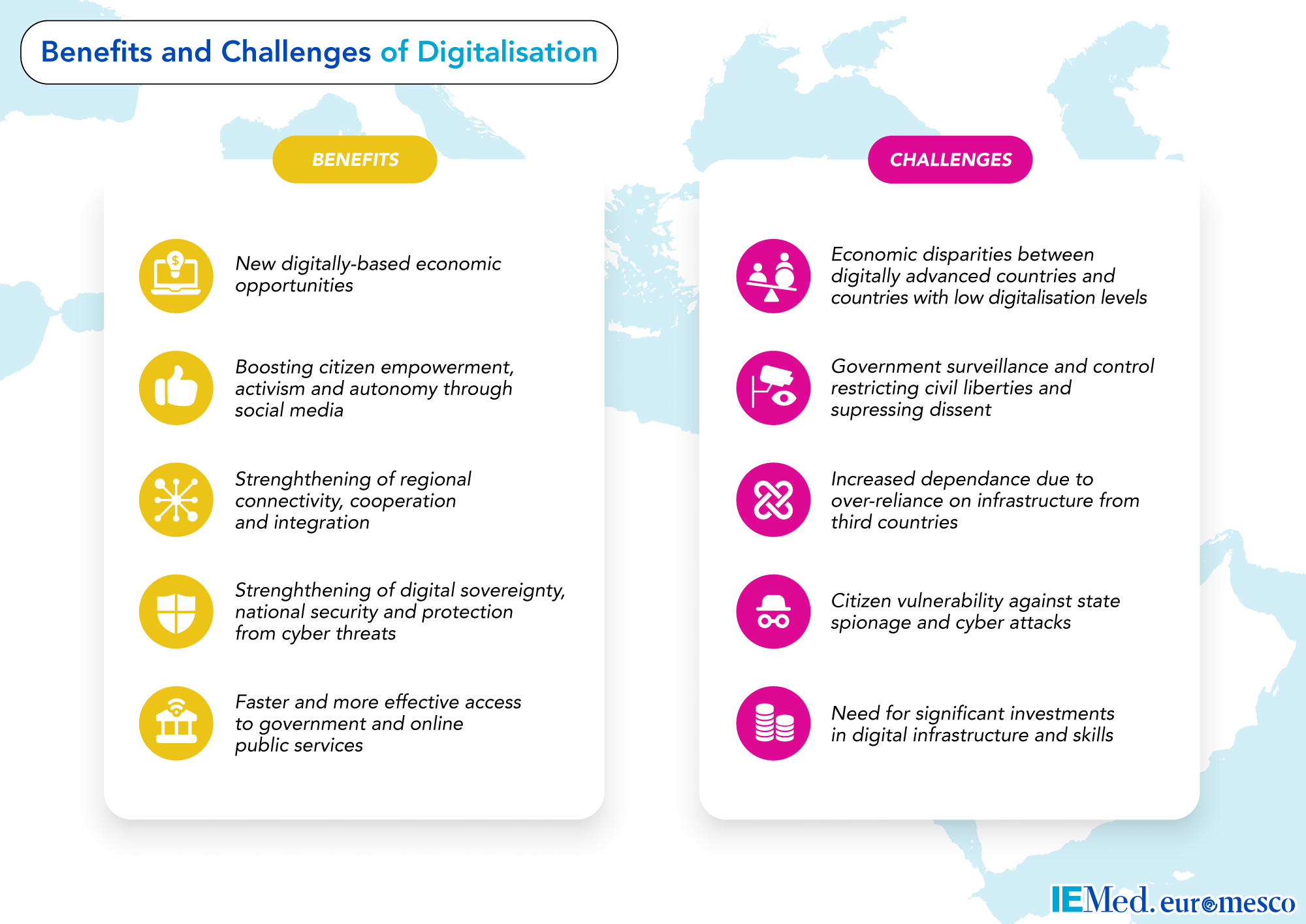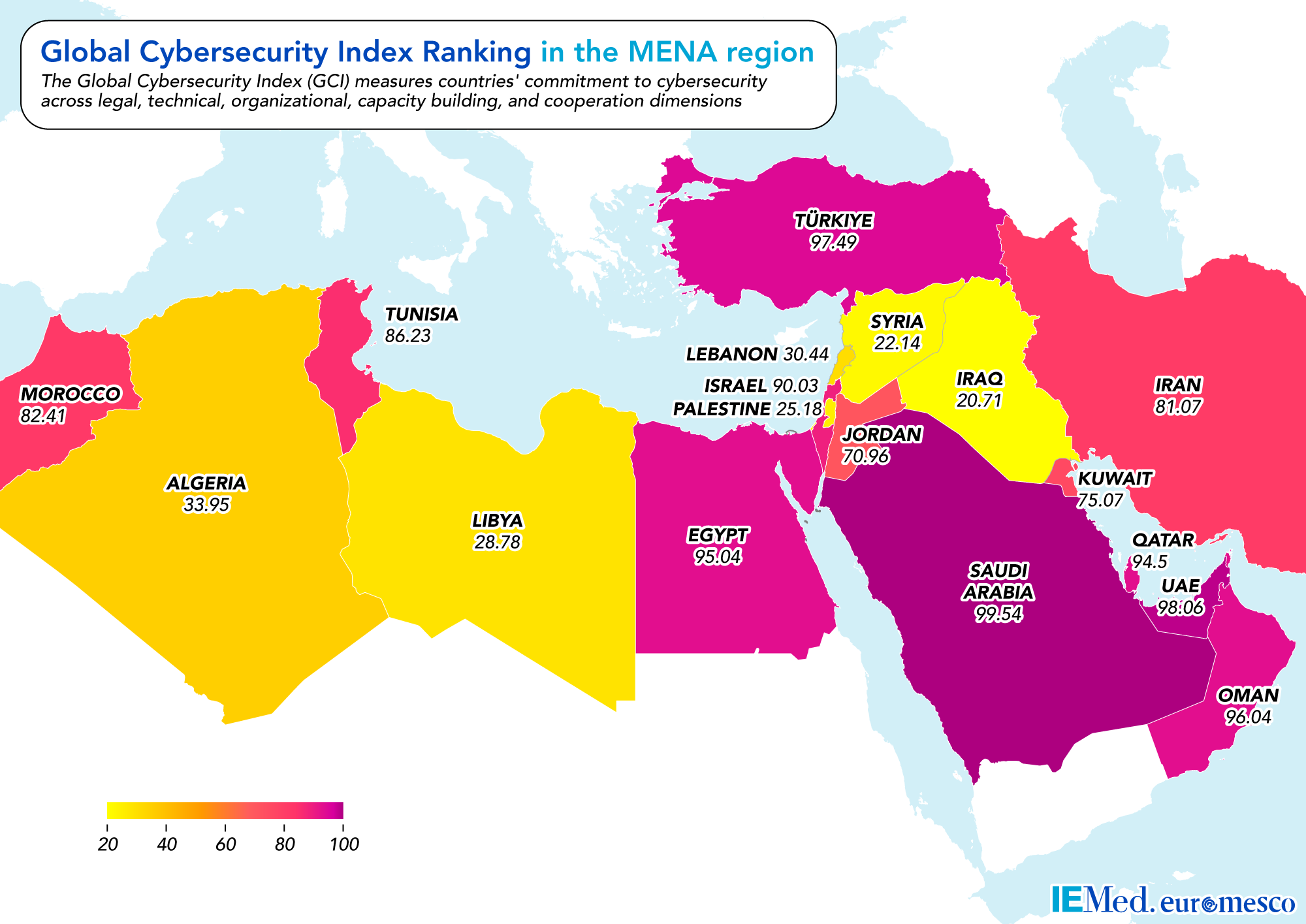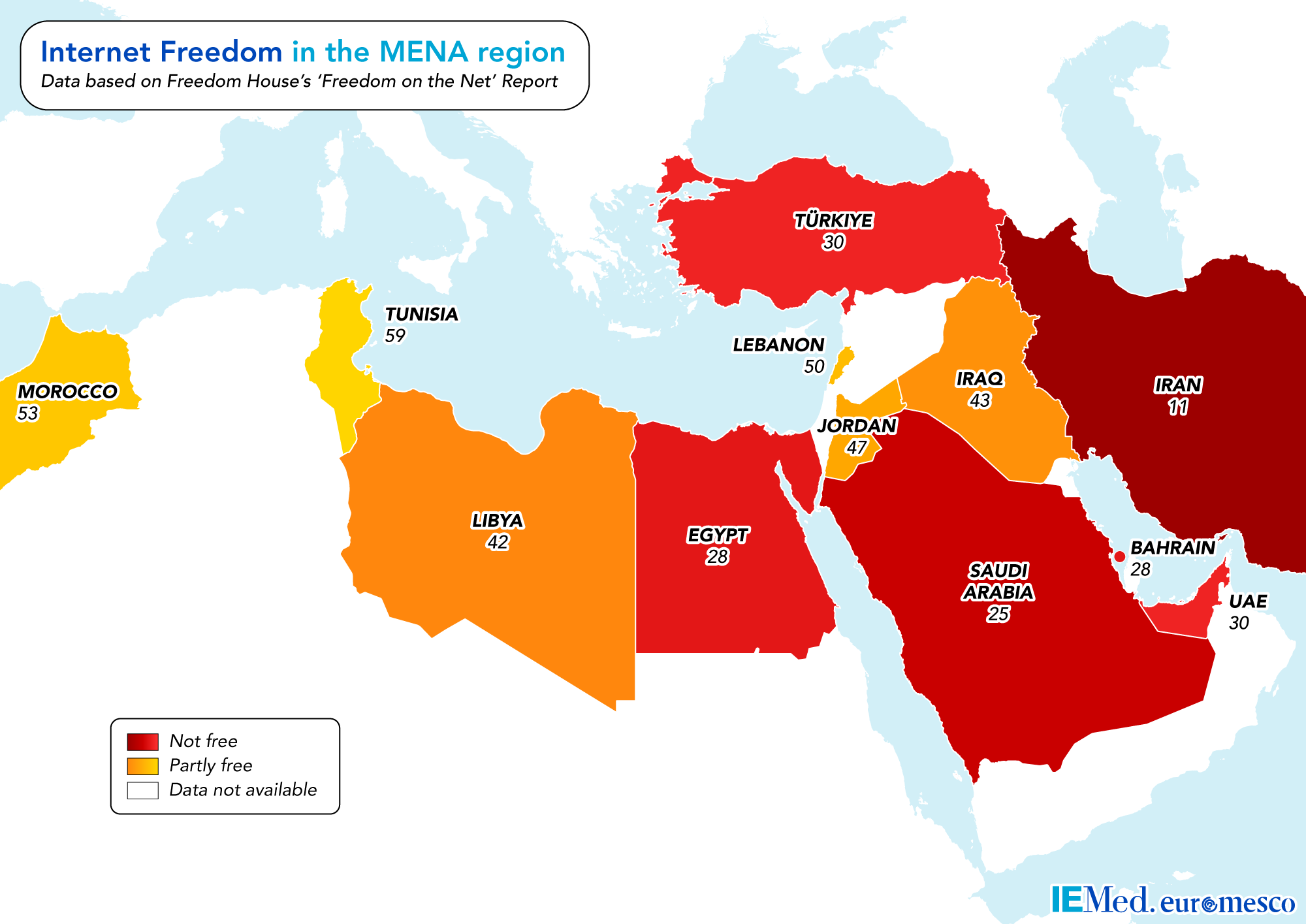
Joint Policy Study / Policy Study
Digital Sovereignty in the MENA Region: Overcoming Paradoxes to Ensure Digital Resilience




Abstract
This joint policy study examines the evolving debates around digital sovereignty in the Middle East and North Africa (MENA) region. Digital sovereignty, understood as the ability to maintain autonomy and control in the digital sphere, goes beyond traditional state control online, affecting global connections, corporate power, and surveillance. It has become a critical issue worldwide, with profound implications for security, economic policy, and citizen empowerment. However, the MENA region, despite its unique dynamics, remains underexplored in global digital sovereignty discussions.
Through four in-depth case studies, the study analyzes both the opportunities and threats digital sovereignty presents for MENA countries, with a particular focus on the Gulf states, North Africa, and broader regional disparities in digital infrastructure. It highlights how digital technologies have empowered social enterprise and civic activism, while also creating new vulnerabilities for state actors seeking to control and weaponize digital spaces. The study also explores the paradox of MENA’s digital sovereignty ambitions: while some states are active in global cybersecurity diplomacy, the region is largely dominated by Gulf monarchies, leading to imbalances. It concludes by suggesting that the European Union (EU) can play a pivotal role in fostering resilience and digital independence in the region, through targeted cooperation in digital infrastructure, education, and policy alignment.
Taking this holistic view, the study sheds new light on MENA’s digital sovereignty landscape while emphasizing the need for nuanced strategies that consider regional diversity and geopolitical complexities surrounding digital governance.





